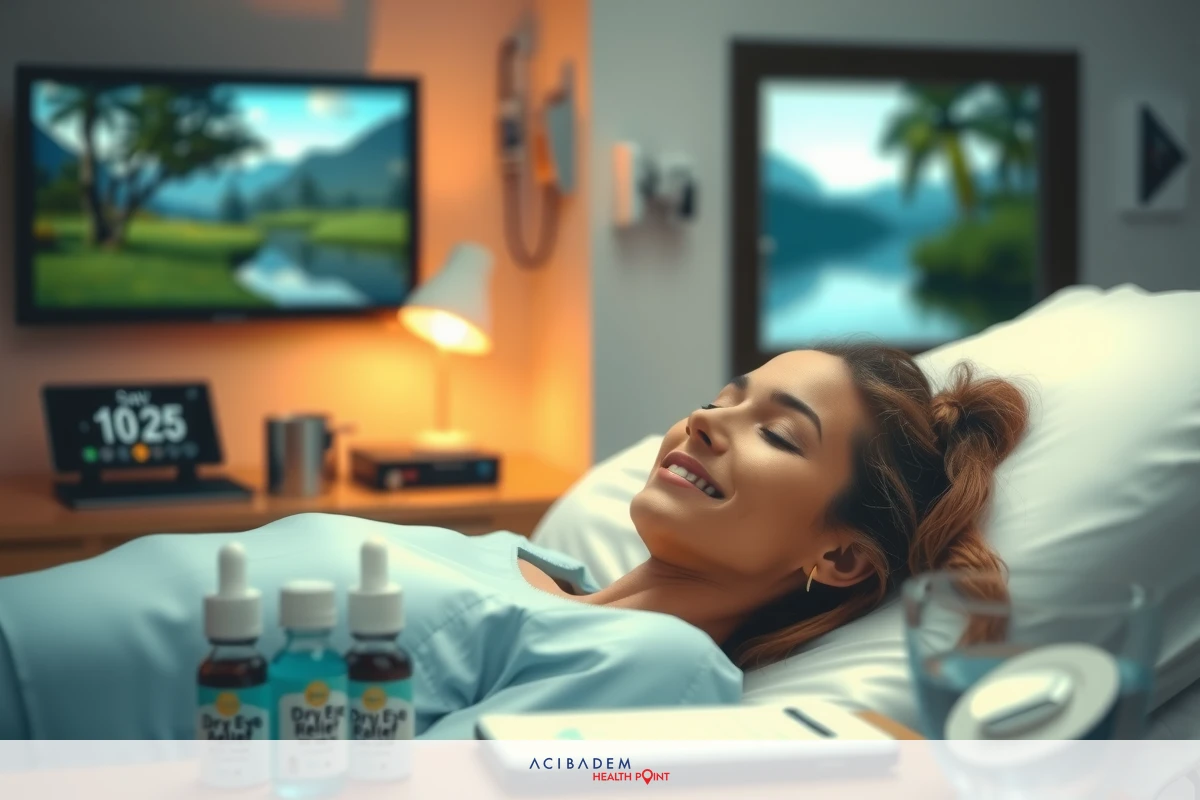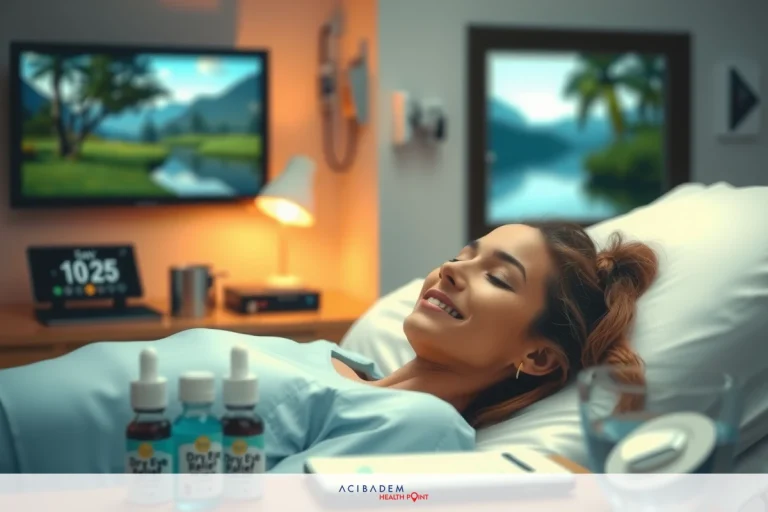Can You Drink After Laser Eye Surgery?
Can You Drink After Laser Eye Surgery? When you walk out of the clinic, having had laser eye surgery done, a curious question might cross your mind – can I enjoy a drink now? The answer isn’t as straight-forward as one would imagine. It veers, twists and turns much like an elusive labyrinth with many factors at play.
Every surgical intervention invites precautions for post-operative care that ensure successful healing. In particular scenarios involving delicate organs such as the eyes even seemingly benign activities could make a difference, like savouring your favourite spirit! Alcohol consumption after having undergone laser eye surgery surfaces often in conversations about recovery guidelines; it’s natural to wonder where lies the line between harmless indulgence and undue risk. Just how long does one need to abstain from alcohol or are there specific recommendations regarding intake amount? These are questions we seek answers to.
Can You Drink After Laser Eye Surgery? Post-Operative Care
As you transition into the recovery phase after having undergone laser eye surgery, a comprehensive understanding of post-operative care becomes paramount. It is like navigating through uncharted waters where every move needs to be calculated and precise. To ensure the journey towards complete healing sails smooth, it’s important not just to abide by designated restrictions but also adapt to lifestyle modifications that foster optimal recovery.
Consider this – your eyes have been subjected to a surgical procedure which essentially alters their structural configuration. With this changed landscape calls for an adjusted regimen; one which might include new routines or habits and possibly omitting certain usual activities. For instance, while drinking alcohol may seem unrelated in its direct effect on your visually enhanced peepers, it can indeed influence outcomes from your surgery.
Have you ever noticed how a glass of wine can make your eyes feel drier than usual? This is because alcohol has a diuretic effect, which leads to increased urination and potential dehydration. If not balanced with adequate water intake, it can cause dryness in various parts of the body, including the eyes.
Now, picture subjecting recently operated-on eyes, already experiencing natural dryness as part of postsurgical reactions, to additional drying due to alcohol consumption. This is an important factor to consider when deciding if you should drink after laser eye surgery during recovery.
That being said, it isn’t time yet for wine enthusiasts or beer connoisseurs amongst us. If you’ve had laser eye surgery, there’s no need to despair. Guidance around these facets forms only one piece among many others within the comprehensive array of do’s and don’ts sketched out under ‘post-operative care’.
A crucial point here though is about moderation vs total abstinence. Advice varies across medical practitioners depending on individual patient circumstances. Hence, consulting directly with yours would be most prudent before raising that next toast!
It takes more than just adhering strictly onto ‘restrictions’ listed on paper, for successful recovery post such delicate surgeries involving our windows-to-the-world; listening to your body and allowing it the grace of time to heal, forms an equally important aspect as well. Let’s venture forth and explore more about these aspects in detail together.
Alcohol Consumption Restrictions
The swirling, gleaming liquid in a glass may appear innocently inviting post your laser eye surgery.
However, much like the mythical Sirens’ melodious yet deadly song, it could lead you astray from the path

of recovery. While patients are not usually expected to maintain complete abstinence from alcohol after surgery, restrictions play an imminent role.
Consider this: refractive surgeries like LASIK or PRK are swift procedures with rapid visual recoveries. However, the eyes still need time and careful attention for full cellular healing. This is where potential issues tied to alcohol consumption may arise. Even moderate intake can impede optimal recovery due to its systemic effects, including dehydration – a topic we discussed earlier. This effect is amplified when coupled with reduced tear production, a common and temporary side effect of laser eye surgery.
Now we venture into uncoloured waters – details around these ‘restrictions’. You’d be surprised that there is no ‘one-size-fits-all’ advice here! While some surgeons recommend abstaining up until at least 1 week postsurgery; others might stretch that window up till 3 weeks—or possibly longer if healing doesn’t progress well enough during initial follow-ups.
Let’s focus on the specifics now: why is there such variation in recommendation timelines? Put simply, it boils down to individual variations among patients. Factors such as their initial health status, daily hydration habits (yes, those do matter!), and lifestyle considerations, including occupational demands, all collectively influence how each person navigates their unique roadmaps of recovery.
Rather perplexing crossroad to encounter wouldn’t you agree? Your surgeon’s office is simply a call away ready to provide tailored advice regarding alcohol consumption suited for your specific scenario. Let’s forge ahead with our exploration, you still have more exciting territories waiting within the realm of post-operative care and recovery from laser eye surgery!
Frequently Asked Questions
What is the recommended period of abstaining from alcohol after laser eye surgery?
The recommendations vary, primarily depending upon individual patient's medical profile. While some surgeons might advise avoiding alcohol for a week, others could stretch this to 3 weeks or even longer based on how your eyes are healing.
Why does alcohol consumption affect recovery after laser eye surgery?
Alcohol can potentially hamper post-operative healing due to its dehydrating effect which when coupled with the temporary decrease in tear production—a common side-effect post laser eye surgery—exacerbates dryness issues hindering optimal recovery conditions.
Does ‘alcohol’ restriction apply only to hard liquors or do beer and wine also count?
Yes, it includes all alcoholic beverages including beer and wines—not just hard spirits—as they all contain ethanol which causes systemic dehydration effects.
Can I occasionally sip on my drink if I maintain good hydration levels otherwise?
It’s crucial that you follow specific directions provided by your surgeon as they are best placed to provide advice tailored specifically for you keeping in consideration your overall health status and surgical outcomes. The answers here are solely for informational purposes and not intended as professional medical advice. Always consult directly with healthcare professionals for guidance suited for your unique circumstances.








